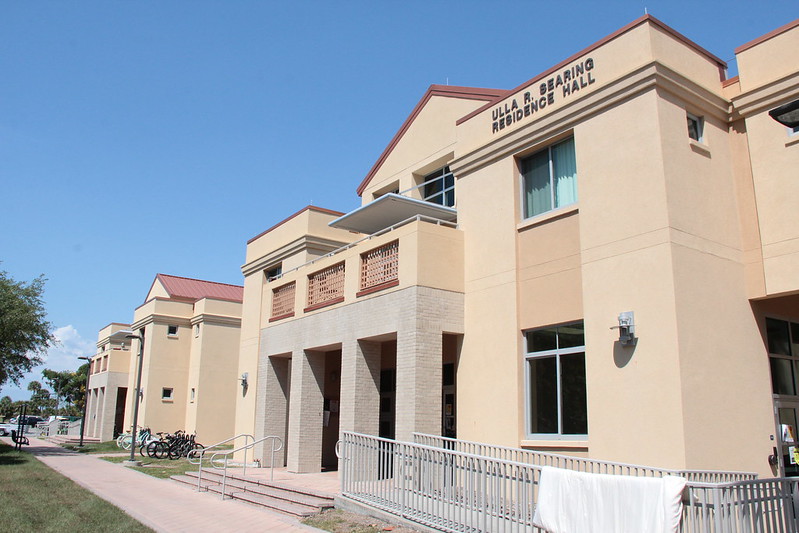
With the semester winding down, students are preparing to tackle finals before the summer break. However, there is one other obstacle that they must face: room selection for the following school year. This is a task that has proved to be challenging considering the new changes that have been made to the room selection process.
“It’s drastically different from my first year,” third-year and Residential Life Representative Taylor Toro, said. “We had room draw. That meant that a representative from the room that you were planning to room with had to wait in line to show interest. Basically, it was first come, first serve the day that the dorm was selected.”
One of the major changes to the room selection last year was the new website, Simple Campus Housing. This website allowed students to select a room online. The time in which students were allowed to pick a room on the website was based on the number of contracts. Once a room had been selected, roommates would have several hours to accept the request. If all roommates failed to accept after a certain amount of time, then the room would be open for another group to pick.
In preparation for room selection, Housing organized several information sessions, including an ice cream social. The goal of these sessions was to make sure that students knew what to expect when room selection occurred.
“For each session, it turned out really well,” Campus Life Coordinator for Residence Life and Housing Operations Meghan Walde, said. “The ice cream social was the biggest hit where we had up to eighty [students]. The students were really great. I was able to go around to each student and make sure that they knew what was happening, what day they were going, and whether or not they were able to get into Simple Campus Housing, who they were living with, and where they were living.”
However, the amount of information available did not mean that every student got the housing situation that they had wanted. “I’m pretty happy with the outcome, but the buildup to actually picking the room was pretty unnerving,” second-year Dylan Pryor said. “I decided early on that who I lived with was more important than where and I stuck to that despite knowing that, with just three contracts, many rooms would be taken before I drew.”
Some students felt that there was not enough time given to make plans prior to room selection. “I do think that they could have gotten the word out earlier,” Toro said. “Maybe two weeks earlier as opposed to before spring break. I personally feel that this amount of time that students were given is okay for applying for on-campus housing. But, the amount of time given to apply for off-campus housing was not okay. It feels a lot like a scramble.”
Another major change that influenced room selection this year was the decision to incorporate Living Learning Communities (LLCs). Different letter dorms were assigned a theme that would attract different students to that particular residential building. These themes are Wellness, centered on making healthy lifestyle choices; Global Village, for students interested in an international experience; and Quiet Community, for students who want to focus on academics. Additionally, SuccessQuest is an LLC specifically for incoming first-year students who want to build skills for achieving long-term goals.
Associate Dean Mark Stier wrote a thesis on LLC’s while at the University of South Florida (USF), titled “The Relationship Between Living Learning Communities and Second-Year Students at the University of South Florida,” and published in May 2014.
“Learning communities allow for the restructuring of curricular material allowing for a deeper understanding and the integration of in-classroom and out-of-classroom educational and social experiences,” Stier wrote in his thesis. “When learning communities and residential communities are merged, a living learning community is formed. The concept of a living learning community allows students to become collaborative partners in their learning experience and introduces them to a more holistic and integrated learning experience. The combination of academic and social educational components increases the level of collaboration between students, faculty members and staff influencing the levels of academic success and persistence rates.”
Despite this, there are students who do not feel that the incorporation of LLCs will be advantageous. “LLCs seem to me like a good idea in practice for a larger campus,” first-year Rebecca Caccavo said. “But [it] is impractical for a community as small as New College. It just leaves many students without housing options. These letter dorms aren’t really being encouraged to create their own communities, just the pre-set ones housing thinks encapsulate wholesome values. It may have worked at USF, but New College needs more independence and autonomy.”
Regardless of what may occur, students are encouraged to place themselves on the waitlists for rooms that they wanted to receive. While not guaranteed, this does mean that students may have a chance to receive the room that they had wanted before the new semester starts.
“Ultimately, I didn’t get exactly what I initially wanted,” Pryor said. “ I wouldn’t want to go through it again, but I’d say it turned out pretty well.”
Information from this article taken from scholarcommons.usf.edu.
